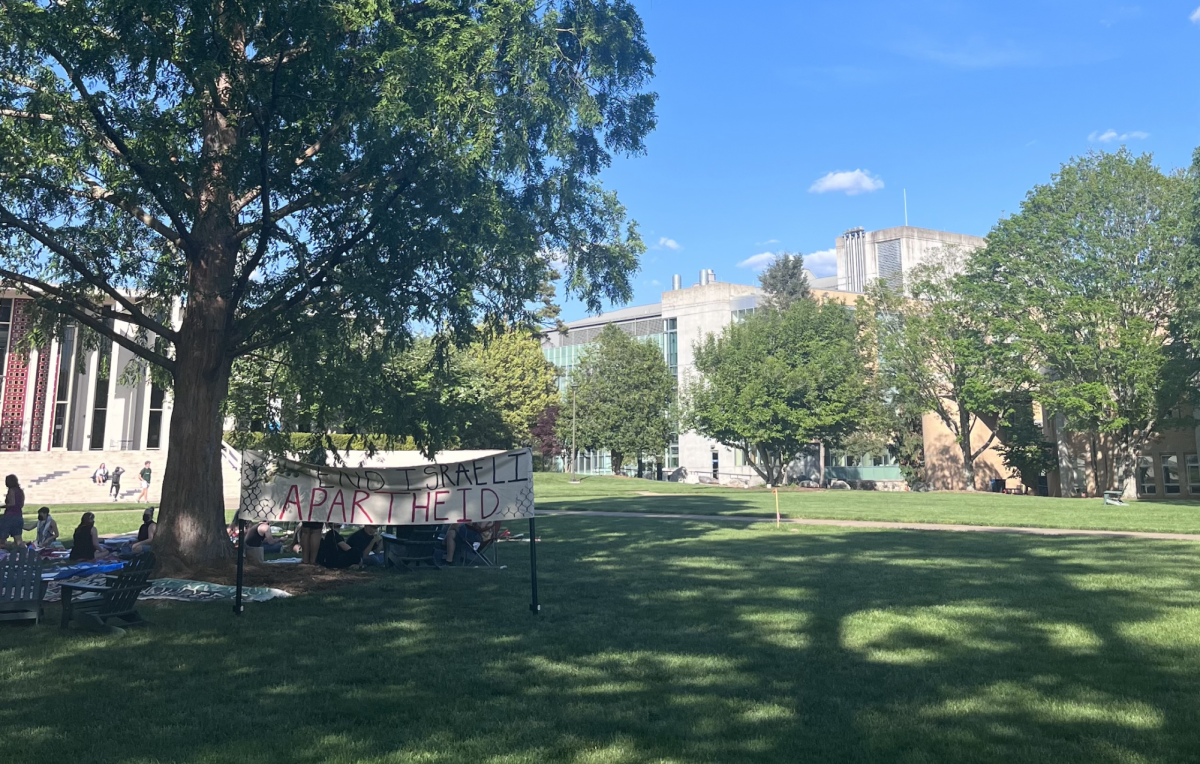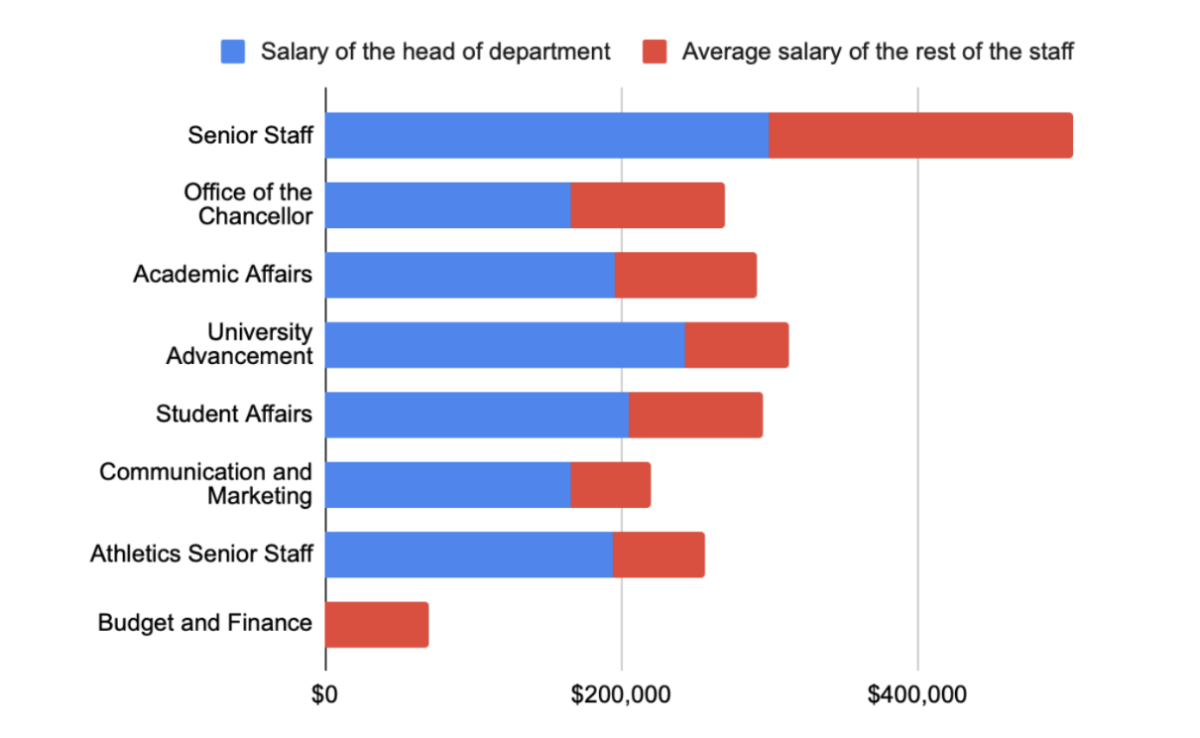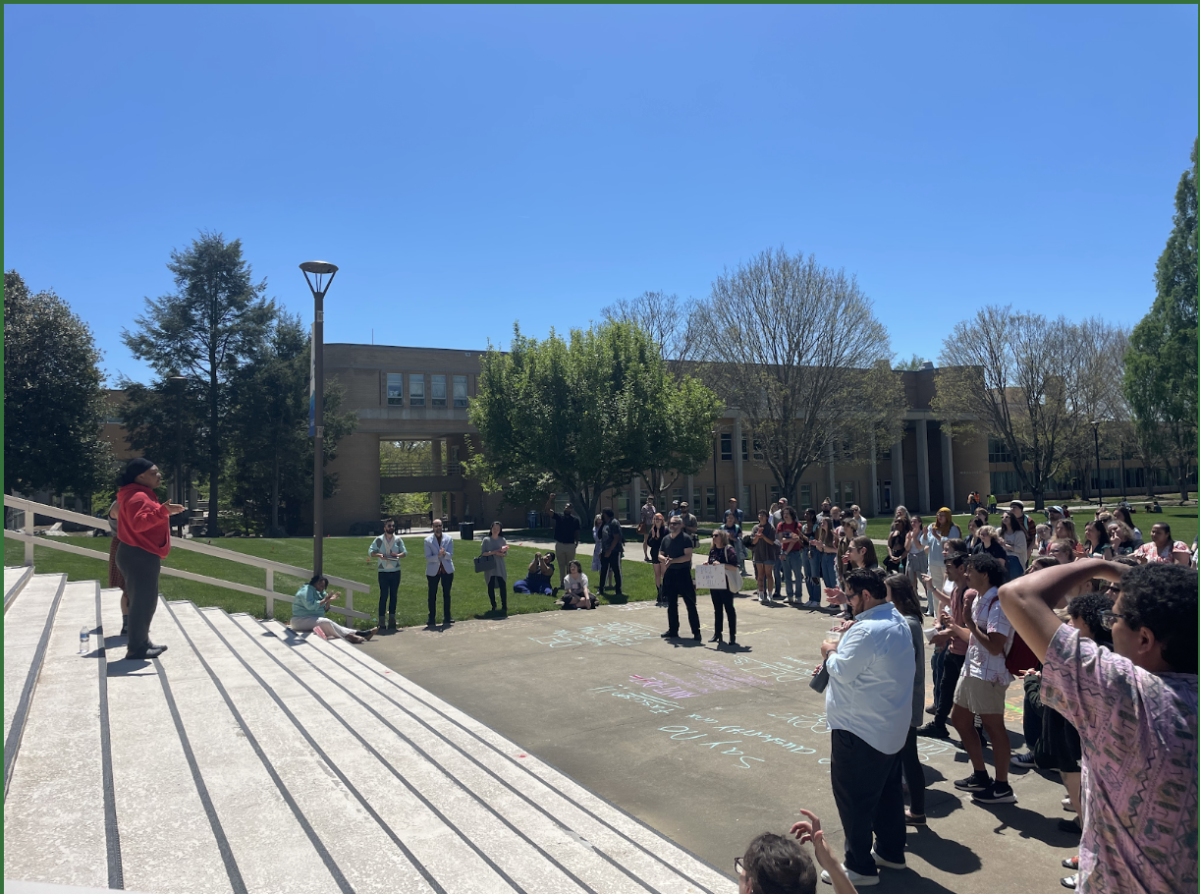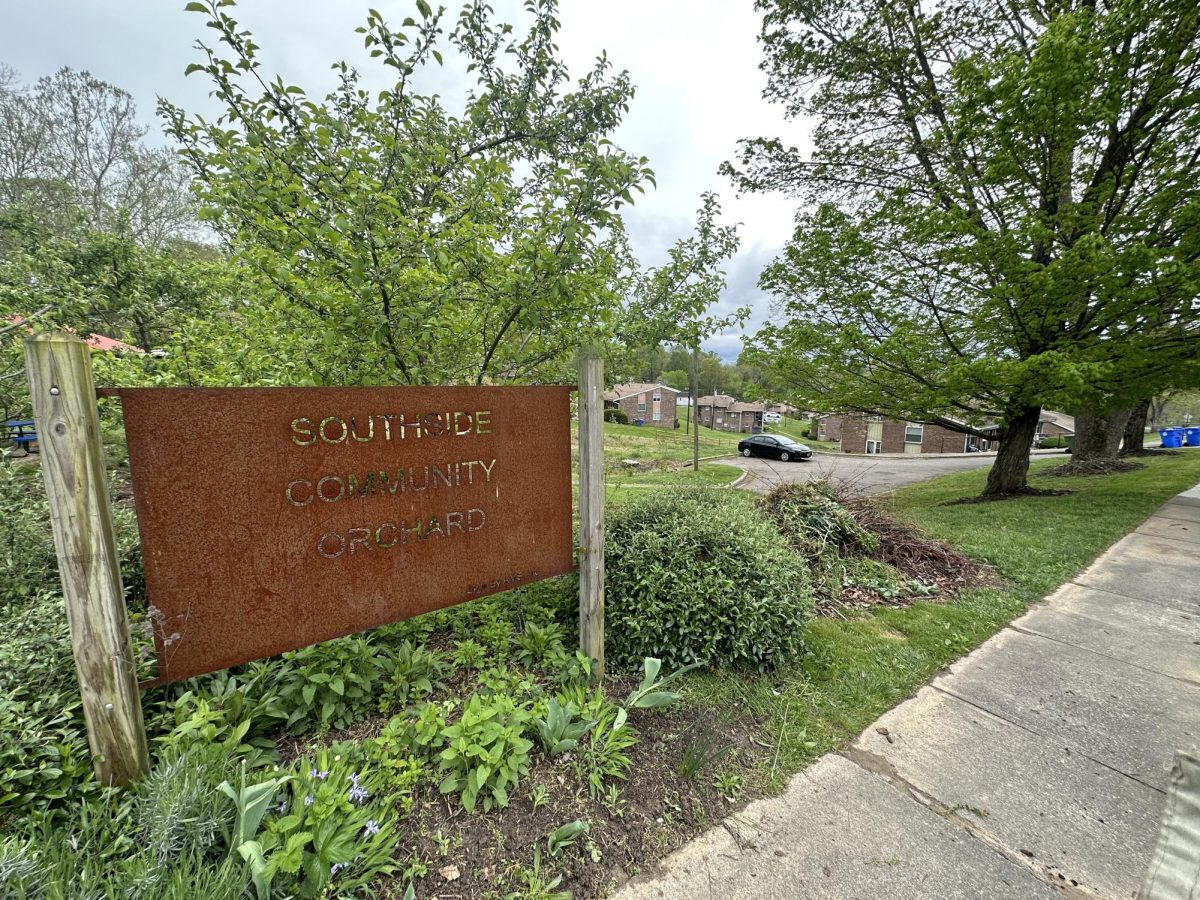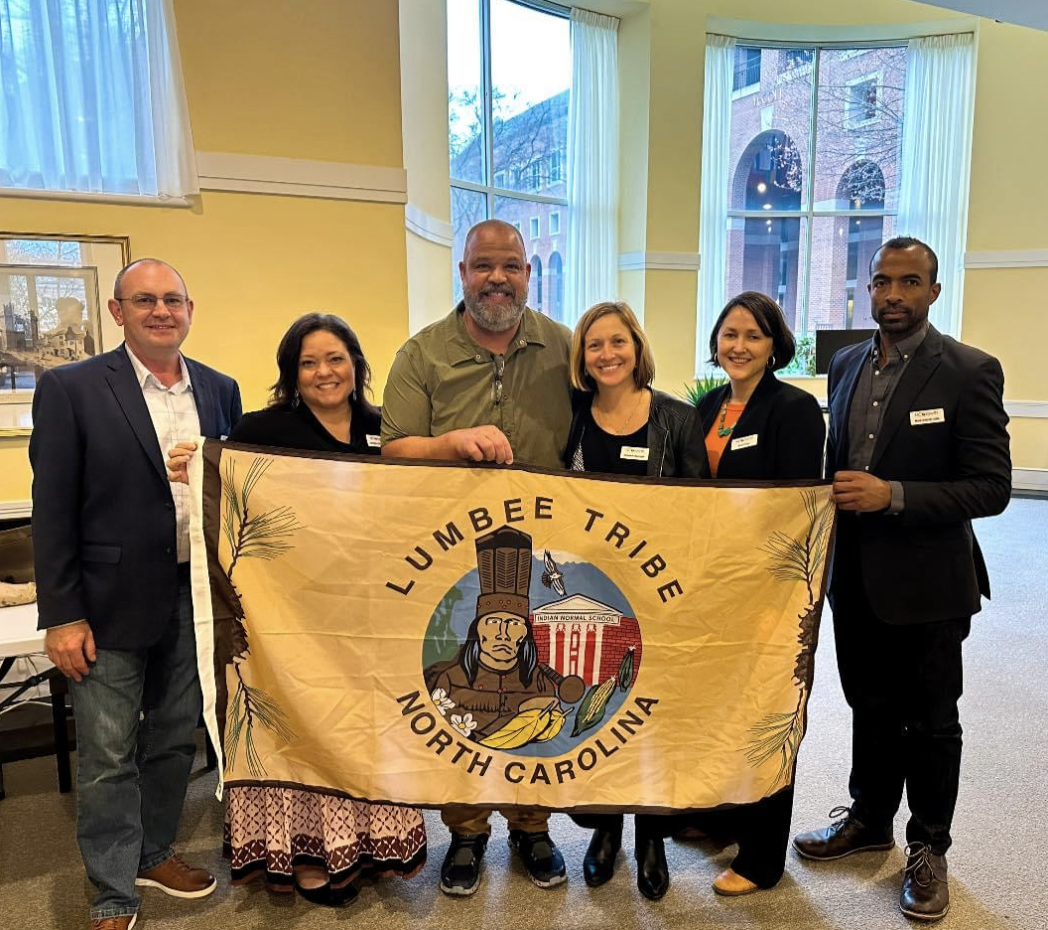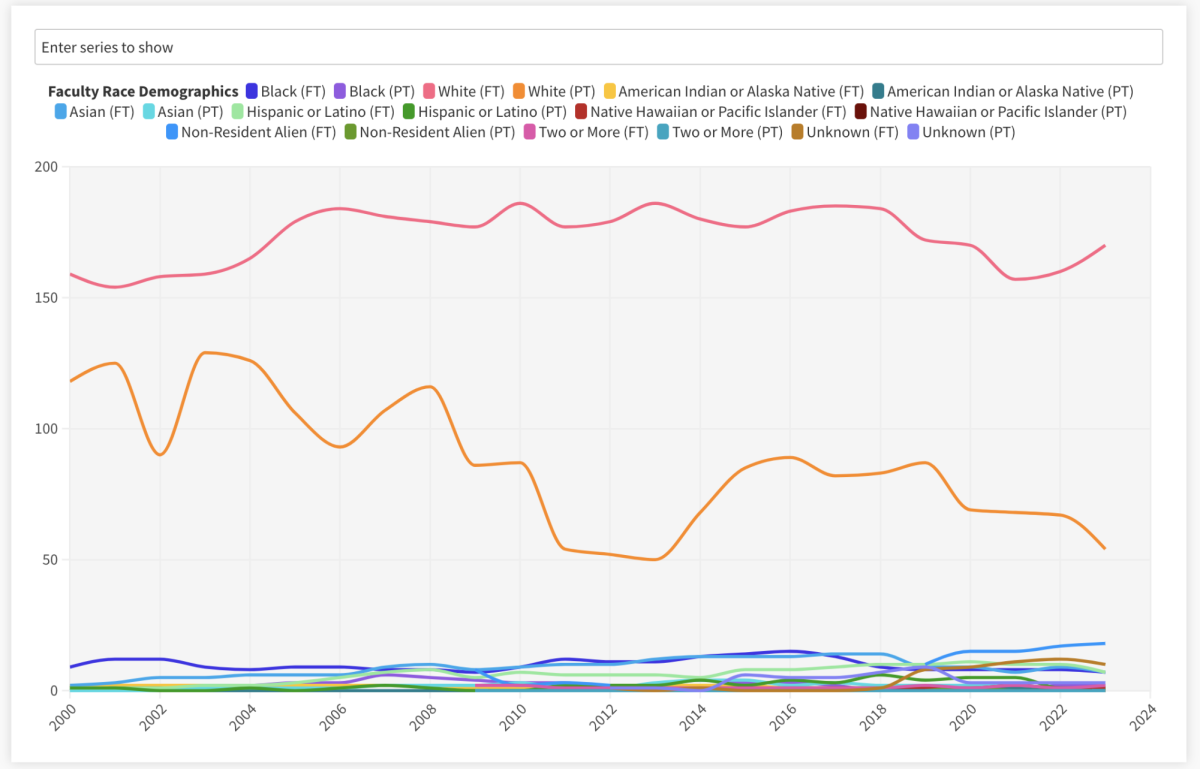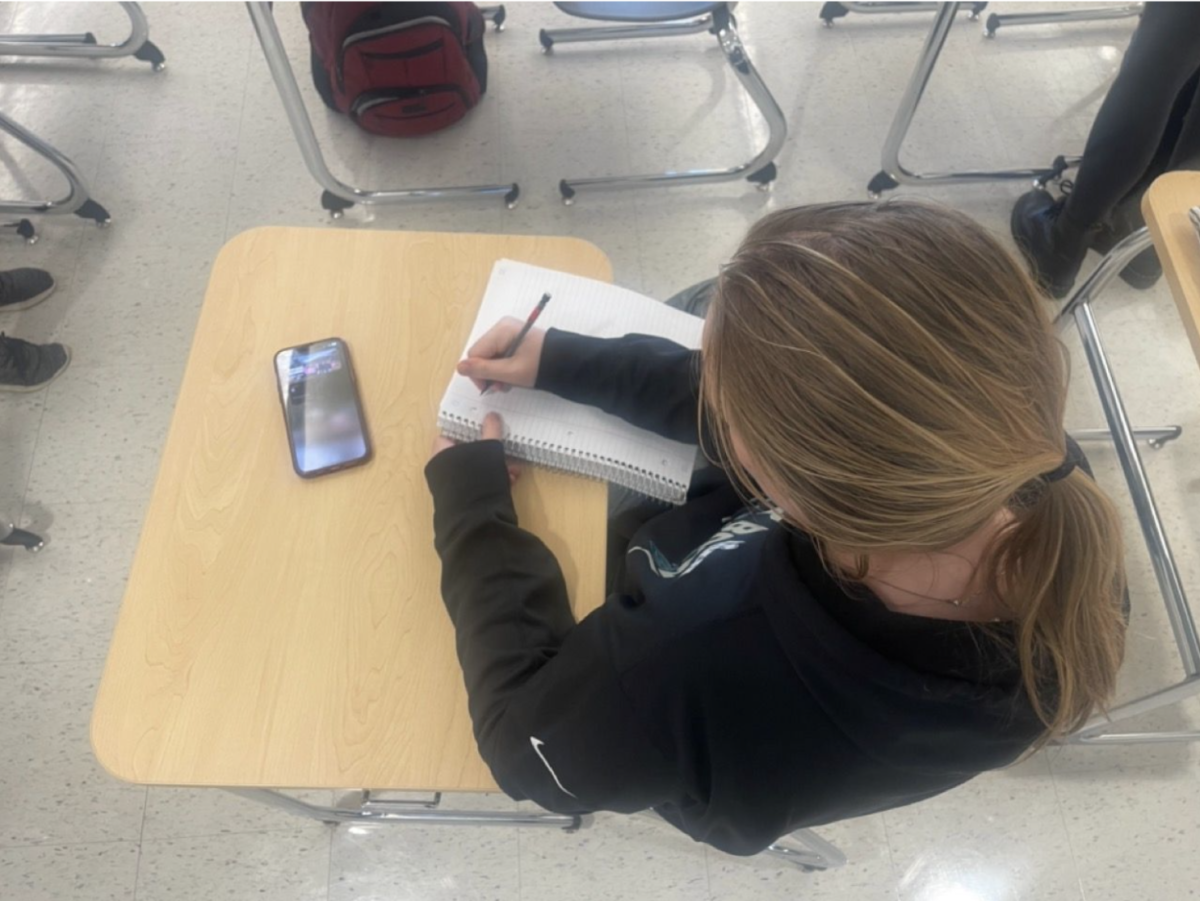Austin Campbell
Contributor
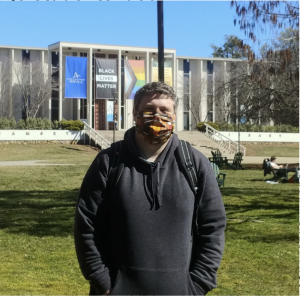
Edward Watkins poses for a photo in front of the UNCA library, on the quad.
UNC Asheville students from varying economic backgrounds say they struggle to survive COVID-19 and fight barriers to attend college.
“The student should be encouraged to explore the impact and application of state and federal COVID-19 relief. Loans should never be used as the primary financing tool for education. While some loan component is a reasonable expectation and an investment in education, students and their families should not overcommit,” said Kortni Campbell, vice chancellor for the admissions and financial aid department. “Students should explore all funding options and interact with the Net Price Calculator and connect to a financial aid counselor as they navigate the financial aid process. UNCA and other colleges/universities are committed to working with students and their families to understand what best fits both educationally and financially.”
Campbell said there is a broad range of programs available to help students financially.
“Some students are more privileged than others as they pursue higher education and take many paths to access education. We hope students make thoughtful decisions and commitments when considering and pursuing their educational options. UNCA is committed to working as closely as possible with our students through counseling, financial aid and scholarship resources for making an education at the university possible,” Campbell said.
Campbell said colleges should work with prospective students and the community to educate them about financial opportunities and funding for higher education.
“It’s one of the many economic inequities, add housing, health care and food, for far too many people everywhere. I think we need to do better working with students to plan college. Maybe it’s not practical right out of high school, but a year of working and saving paves the way for a much smoother enrollment and academic journey,” said Jackie McHargue, UNCA’s dean of students. “We have set up a model of going right from high school to college and we need to reevaluate if that is what is best serving students. Many countries embrace a gap year for work and travel and we have yet to do so.”
McHargue said some people look over community colleges for schooling, even though they are excellent options for certain people.
“Time management can be so hard for students who are working, particularly off-campus. Students often tell me about supervisors changing schedules, adding shifts and ignoring time off requests. That makes their juggle of work and school even harder. You need to work more hours to cover more expenses, so you do, and then a bill gets added, so more hours at work and less at school. You get a lower grade or fail, so you have to retake it, which costs more money. Now you have to work more. I wish students did not have to juggle so much of this,” McHargue said.
She said there should be better opportunities for students to learn budgeting and financial planning.
“Loans are part of the aid program. Until the whole model changes, we are stuck with them. I think helping students not take out more than they need, saving refunds wherever possible and consolidating and refinancing when rates drop are all part of the process we need to be educating students,” McHargue said.
McHargue said the biggest financial gap UNCA should correct for students is a completion grant for students who are close to graduating and need more financial aid for the final push.
“Four-year universities have made it such a barrier to pay for them that it inherently causes an issue. It’s almost become an indentured servitude, where you have to go to college to work, but you have to pay for college somehow, and it’s not possible to work a full-time job, be a full-time student and afford tuition. Those numbers just don’t add up,” said Edward Watkins, a 32-year-old UNCA college junior.
Watkins, who was in the Army for five years, said he uses his veteran’s education benefits to attend college. He said even though his college is paid for, he still struggles financially.
“I couldn’t afford not to work. The GI Bill is the only reason I can go to school. I couldn’t afford tuition and I couldn’t afford to live without it. The way the GI Bill currently exists isn’t super helpful. I had a job prior, so I had savings, but if you relied on the GI Bill for rent, you have two full months where you don’t get paid your basic allowance for housing,” said Watkins, a full-time college student. “You want me to go full two months, including Christmas, with no money?”
The VA does not pay veteran students in between semesters so that the veteran’s benefits are not exhausted before their graduation.
“I did five years in the military, which is above and beyond what most people would do to go to school, but those people have to spend a lot longer working to pay off their student loans. So the way I see it is I chunked the work up ahead of time,” Watkins said.
Watkins said he sacrificed a lot of his body while in the military and he can feel the toll every day.
“I’ve got arthritis and I’m only 32 years old. I had to do a lot of physical things to earn the GI Bill, and I have a lot of injuries from it,” Watkins said.
Watkins said he currently does not receive medical care from the VA and worries about the school’s health insurance.
“The University of North Carolina’s health care system is inadequate. You don’t have great dental care and the students are being charged these astronomical amounts of money and then not being provided with a lot of medical value,” he said.
Watkins said he grew up in an upper middle-class family and that his parents could have paid for his college education. He decided to go into the military so his family could keep the money instead.
“The cost of entry into a four-year school hampers people, especially if you aren’t well off and you don’t have an option. You have to suck up whatever loan is offered to you. It’s not fair because 18-year-olds don’t have the financial knowledge to make decisions that turn into $60,000 or $70,000,” Watkins said.
The college junior said he’s worried about how other students can pay for school because most students work in the service industry, which is restricted due to COVID-19.
“It’s a lot to balance a part-time job, finances and a full-time school schedule. The cost of living in Asheville is incredibly high, and the wages are significantly lower than they should be. Trying to do things like paying for tuition is much more difficult when I’m trying to pay my rent and bills,” said Tori Rigsby, a 23-year-old, junior at UNCA.
The UNCA student said he faces financial hardships that some students might not.
“I was raised in the lower-middle class; I grew up in the country right outside of Asheville. I grew up in a double-wide trailer, but it was nice. Our family was not wealthy by any means. Both of my parents were non-college-educated, blue-collar people who just worked their whole lives,” Rigsby said.
Rigsby said he graduated from a local Buncombe County high school and now attends UNCA.
“I noticed that most kids that got into college took honors or advanced placement classes, but of course, this is locally going to Clyde A. Erwin High School. Most kids were lower or middle class and it came down to having perfect grades for you to have a chance of going to college. The school only encouraged a select few to go to college, only the students they thought had a chance, which is the sad reality of most local high schools in the region. I had to take honors classes and advanced placement classes and do as many extracurricular activities as possible to look good for a college,” Rigsby said.
The full-time student works part-time for Asheville City School’s safety department. Rigsby said it is much harder for him to be in school than for someone who doesn’t have to work.
“I don’t get financial aid, and the school hasn’t reached out to me about being able to afford my classes, so working is a necessity. I’m working to live and pay for school. I want to be in school, but I also have to live, you know,” Rigsby said.
